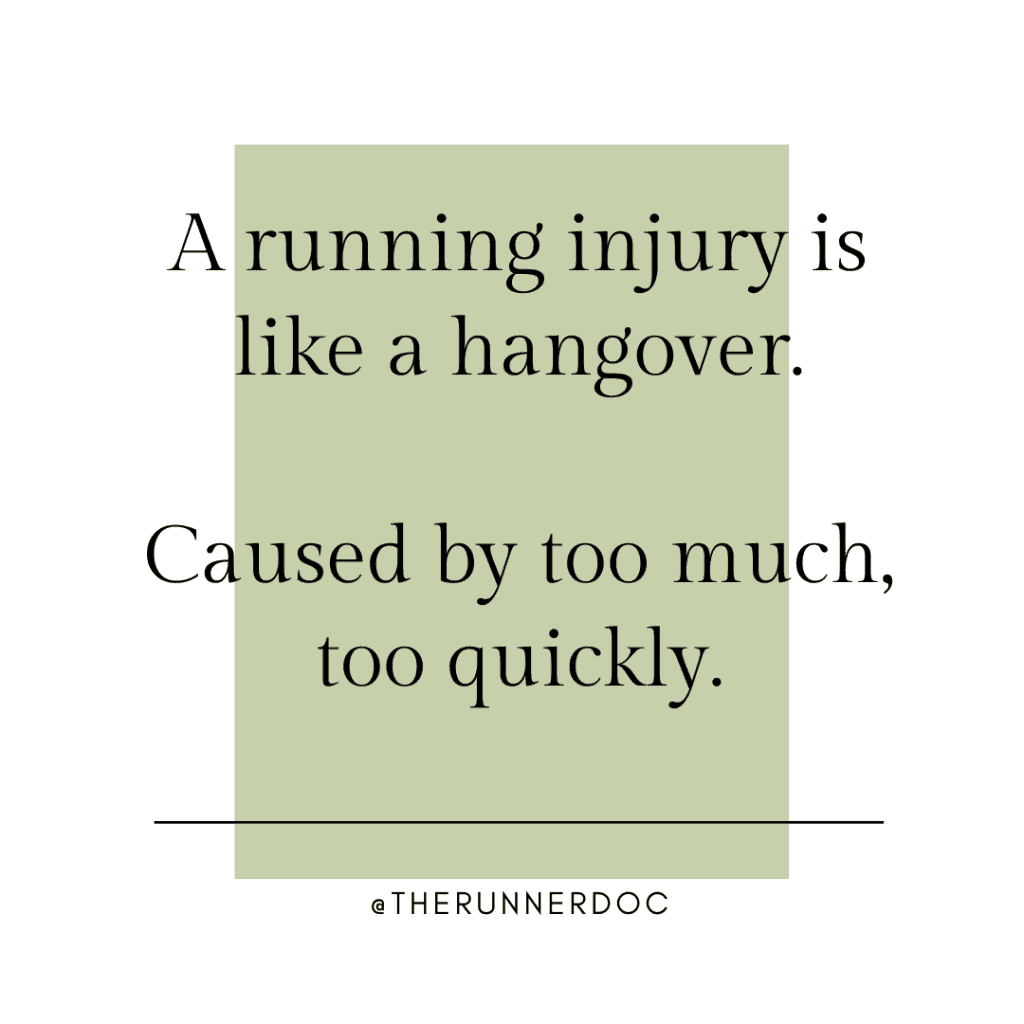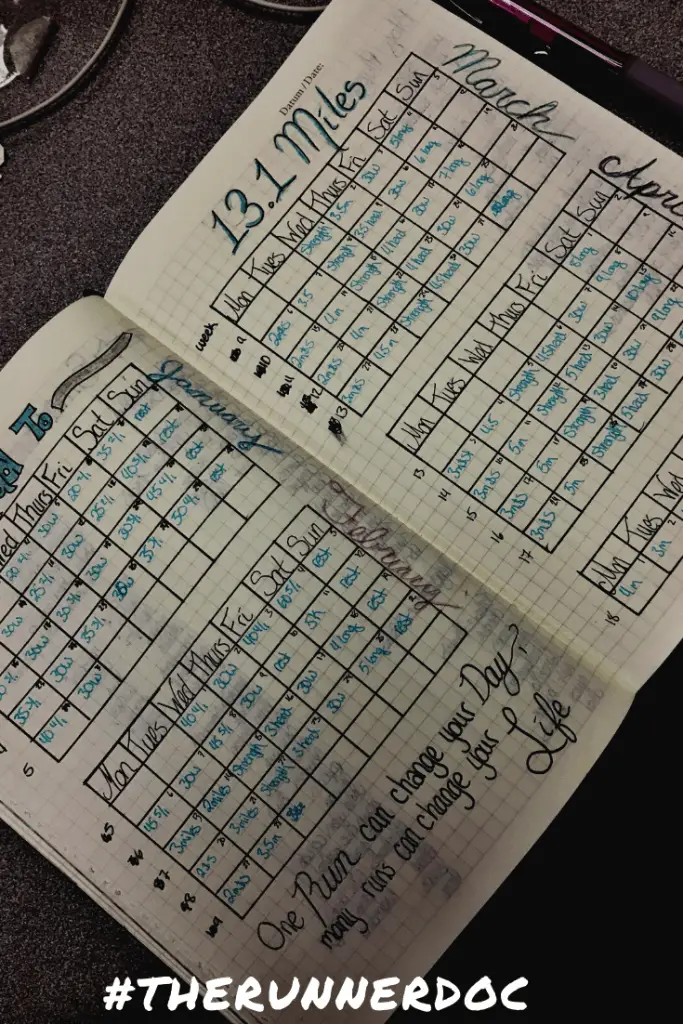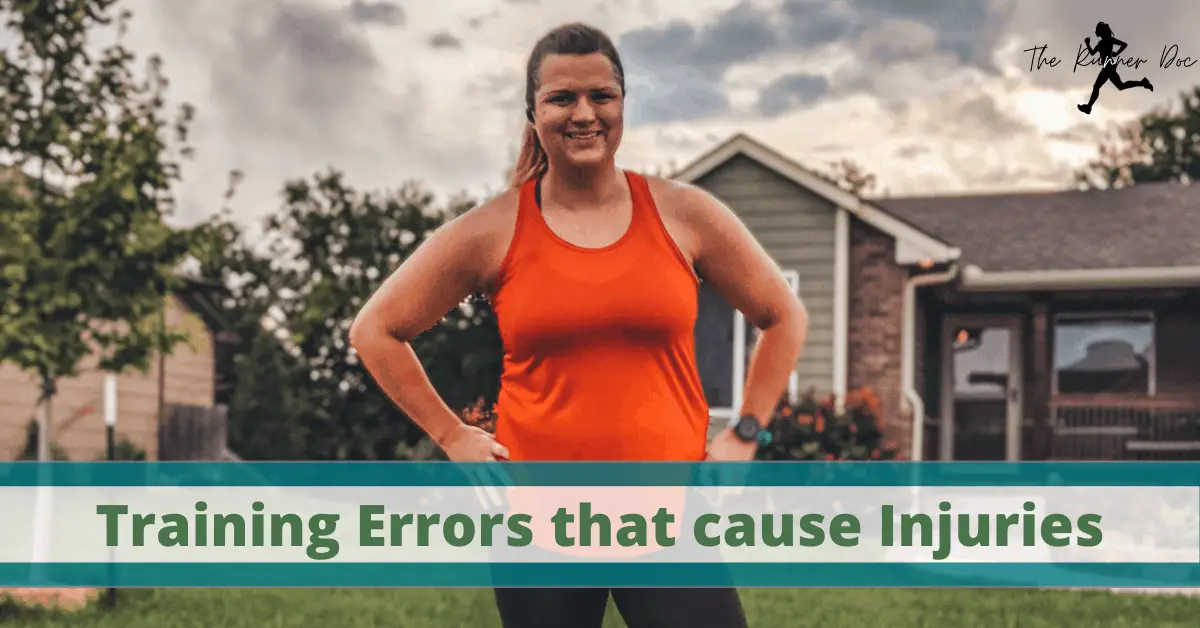The Most Common Training Errors for Runners
Running injuries happen, and usually due to training mistakes. Let’s get this straight from the start though, running does not cause injury. Training errors cause injury for runners. In fact, 60-70% of all running injuries are caused by training error. The good news with this statistic though? These injuries can be prevented by fixing common training errors for runners.
If we can change our training we can reduce injury risk. This is awesome news. However, change isn’t always the easiest thing to do. Especially since there is a lot of misinformation out there that convinces us that more running is what causes us to get better. In fact, Kim of TrackClubBabe on Instagram talks about decreasing mileage and how it made her a better runner!
Common training errors for runners
#1 Too much, too soon
Kinda like a hangover. Running injuries are caused by changing or increasing too much too soon. Then, as soon as you feel better you do it all again. It becomes a cycle of too much mileage and too much intensity way too soon which our tissues aren’t able to handle that much stress. This is usually also accompanied by not enough recovery because “recovery is for weaklings”. See the next training error for more 🙂

#2 Avoiding Rest Days
Recovery and rest is one of if not the most important thing for keeping runners healthy and injury-free. When we exercise we put stress on our muscles, joints, and tissues. Basically, we cause microtears in the soft-tissues of our bodies. If we don’t take adequate time to recover and repair those tears that are required to build stronger bodies, we will end up getting hurt.
Think that running every day will make you a better/faster/or whatever runner? Think again. In fact, it will have the opposite effect on you. Check out this post about Run Streaking.
#3 Too Much High Intensity Training
Pushing too hard all the time. For endurance athletes 5k and more, the focus should be on low intensity training. Run slower and easy. This is where the 80/20 rule comes in that I used to ignore. I would only do high intensity training and then fall off the wagon.
#4 Poor Weekly Planning
This relates back to the last point. Runners need to look at a bigger picture than just the day-to-day. If you do a strength workout on Tuesday don’t plan a speedwork session on Wednesday. Alternate the harder days with easy run days. We need to think about how one workout is going to impact the next day’s workout.

Some great sites for run coaching are:
#5 Returning Too Soon After a Break
This is one is extremely common in January and February. I see a lot of people take a break from running and fitness over the holidays. Usually starting a decrease around thanksgiving. Then, once January hits they are ready to “get back to it” and pick up where they left off. The problem with this scenario is that a month long break is enough time to allow your tissues to become deconditioned.
Jumping right back into running after any amount of break is a recipe for injury. This goes back to the first training error and doing too much too soon. If you need more guidance on how to come back to running after a break go HERE.
#6 Playing the Comparison Game
Doing what others are doing in their training and replicating their mileages and workouts. Individualization is key. You need to train based on your level, your life, and your body’s response to training. NOT what others on instagram are doing. This will lead to over-training or putting more stress on your body than it is ready for. Stress on tissue is what causes injury.
How to fix common training errors for runners
#1 too much too soon
Pick just one thing to change. Either volume ( use the 10% rule as a loose rule) or intensity. This is where building a base mileage is so important for preventing injury. Some of the best advice I got when I was just starting out on my running journey after having ITBS was to get the miles first and then the speed will come. The moral of that advice was to stop doing too much too soon. Increase your load and then work on intensities!
Make your change correlate to your goal. If you want to go further work on increasing mileage OR if you want to go faster for shorter distances then work on that. BUT NOT BOTH.
#2 Not Recovering
This is where listening to your body comes in. If you feel extra tired or just worn out. You need a rest day and need to reassess your training plan and volume. I recommend every take AT LEAST one full rest day a week, at a minimum.
You need to put as much effort into your recovery as you do into your training. This goes forward to planning your week and individualizing your week to your level and recovery needs.
Another way to ensure you are recovering properly and have a good training load is to do recovery weeks. Include a recovery week about every 4th week. To do this, reduce your weekly distance by 5-10% but maintain intensity. Consistency is more important than higher mileage or intensity.
#3 Too Much High Intensity Training
We get most of the benefits from our training at lower intensities. What this means is that 80%, as a rule of thumb, of our running should be low intensity. Only 20% of our running each week and throughout a cycle should be at a higher intensity. Higher intensity runs are tempo, speed, hill, and etc type workouts.

#4 Poor Weekly Planning
Having a good plan is key to improving and staying injury free. This is where a lot of “free” plans fall short. If you really want to have a good individualize plan hire a coach. At the bare minimum a professionally created training plan that is appropriate for your current fitness level. My typical advice for first time purchasers is to level down from where you think you are currently.
#5 Returning Too Soon After a Break
Check out my post about returning after a break. You need to reduce your overall training load and intensities. Reduce your weekly mileage by around 60% of what it was before the break and build back up again to your pre-break distances. Keep in mind this 40% reduction is assuming that you only took about a month-long break. Any longer than that and you will want to reduce even more.
#6 Playing the Comparison Game
Don’t be like Dave. Just because Dave is running 100 mile weeks doesn’t mean that is the best for you. Dave probably has a long history of running and has worked his way up to this point. You probably haven’t. You are an individual person and require your own plan and individualized program. If you were to poll most of the high mileage athletes they will probably have a coach that is individualizing things for them to get the best results.
Other Training Errors in Runners
This list is not all-inclusive, obviously. But these are the most common things that I see in injured runners. Also, I want to point out that there is a lot of overlap between all 6 of these training mistakes.
I don’t know about you but I feel like all of these are fairly simple things to correct. Stop doing these mistakes and you are well on your way to bullet proofing your body and not getting injured on the run!
Keep Running!
AFFILIATE DISCLOSURE
As an Amazon Associate, I earn from qualifying purchases. This post may contain affiliate links. If you use these links to buy something we may earn a commission. The Site may contain links to affiliate websites, and we receive an affiliate commission for any purchases made by you on the affiliate website using such links.

Thanks for helping to make the Runners’ Roundup a huge success by visiting all of the hosts: Laura, Deborah, Debbie,Jen, Lisa that I’m linking up with today!

Dr. Abby Siler, PT, DPT is a Physical Therapist with 10 years of experience in a variety of settings. She has spent the majority of her time treating athletes in orthopedic clinics and worker’s compensation cases. She is a runner herself for the past 15 years and a lifelong athlete. Dr. Abby loves to teach runners how to stay injury free and out of her clinic.







Yes, I agree 100%- running doesn’t cause injuries, poor training causes injuries. These are all good points! If we can avoid the ‘too’s” (too much, too soon, too fast) there’s no reason to be injured.
Yup! Get some strength and mobility work in there while avoiding those and runners can be set!!
Great tips AND great solutions!
Since my injury, I have been very careful about my intensity, stamina, and ability. I’d rather take it slow and easy and run forever, than screw it up by forcing and rushing things.
Yes!! I have also found that runners that I treat and get back to running come back stronger than they were pre-injury if they follow what I tell them to do!! I often ask people if they want to run forever or run right now!!
Great tips. I’ve had very few injuries over the many years I have been running and I contribute that to avoiding the things mentioned.
That’s awesome!
100% to all of these! As a coach I often have to “fix” runners’ tendencies to skip rest days (because it’s not just rest from running) and running easy runs too fast.
These are brilliant points and solutions! I know I’ve made the error of taking a break and then doing too much too soon, forgetting that I need to ease into it. I’m pretty good at doing most of my runs as easy but I have a friend who insists on going hard all the time, and she has been in and out of physio.